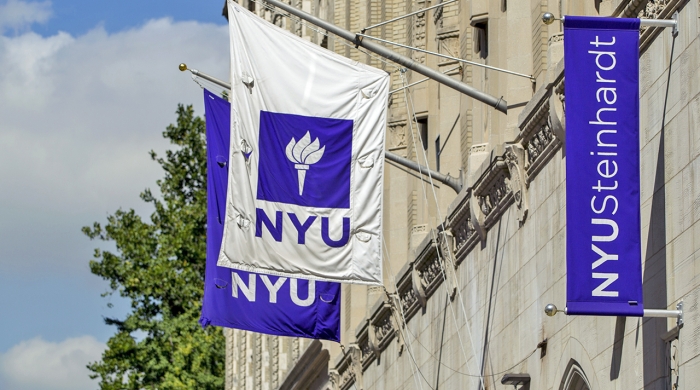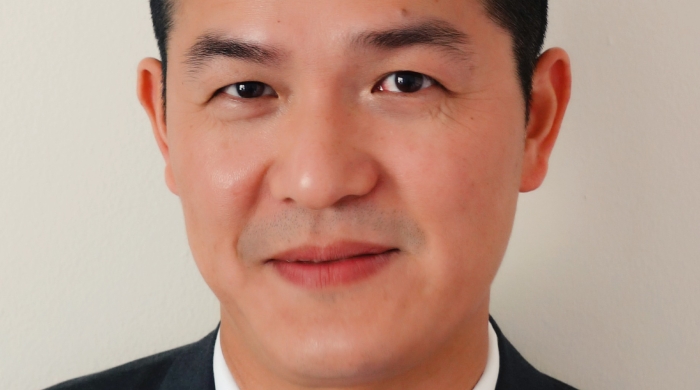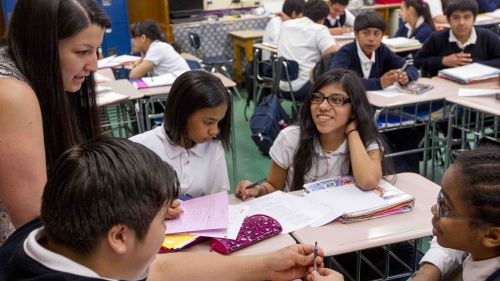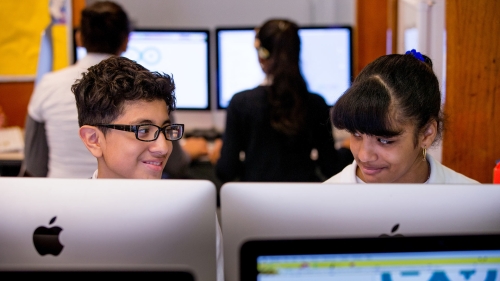NYU Steinhardt’s Assistant Professor Kongji Qin recently published his article, titled “Negotiating Racialized Discourses and Navigating Racism in U.S. Schools: Understanding Chinese Immigrants’ Parenting Identities and Practices Through an AsianCrit Lens,” in the journal Urban Education.
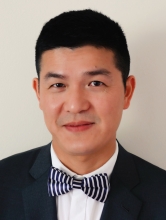
Qin and his co-authors studied a group of Chinese immigrants’ parenting practices in relation to their children’s education through a lens of AsianCrit, a branch of critical race theory that focuses on understanding the impact of racism on Asian Americans and immigrants.
“We conducted a qualitative interview study of 25 Chinese immigrant parents with children from elementary through high school,” says Dr. Qin. “We focused on questions such as how they navigate the relationship with their children’s school, how they set up expectations for their children’s education, and how they handle issues like kids being subject to racism and discrimination.”
They first examined the common perception that hyper-vigilant parenting – often called “tiger parenting” – is deeply embedded in Chinese culture. Their study sought to understand if these parents set high expectations for their children and, if they do, how they articulate why it’s important.
Their research findings countered the discourse that stereotypically views all Chinese immigrants as tiger parents.
We want to bring forth data that can inform substantive policy changes to the educational system.
“There exists a racialized ideology about what Chinese students should be like and the expectation that they’re all ‘A’ students, and some parents might have internalized that ideology, which contributes to their high expectations for their children,” says Dr. Qin. “However, our data is also telling us that not every Chinese parent is a tiger parent; most Chinese parents want their children to be happy and well-rounded."
“More importantly, our data shows that when parents encourage their children to excel academically, it is because they feel like their children are evaluated unfairly and they view excellence in academics as one of the limited ways for them to circumvent racism in the educational system,” says Dr. Qin.
In analyzing the interview data, Dr. Qin and his colleagues found that when children are subjected to racial aggression, their parents feel unable to help.
“One reason parents felt powerless is because they perceived that the teachers and institutions weren’t responsive to these issues, and they worried that if they advocated for their children then they might be further disciplined,” says Dr. Qin.
The data showed that parents chose a variety of responses to help their children navigate racist encounters, including striving to develop in their children a positive Chinese identity so kids can better tolerate racism, taking time to volunteer at school to establish a rapport with teachers and students to mitigate racist behavior, and encouraging their children to avoid racist contexts.
“However, some of the controlled responses were especially painful to hear. For example, in order to avoid racism and microaggressions at school, some students took drastic steps, such as staying in the bathroom between classes to avoid being ridiculed in the hallway,” says Dr. Qin.
Now that Dr. Qin and his colleagues have identified some major issues that Chinese immigrant parents face in handling racism their children are subjected to, they hope to complete a large, quantitative study to find out how prevalent these problems are throughout the nation.
“We want to bring forth data that can inform substantive policy changes to the educational system,” says Dr. Qin. “Particularly in this current world of increased anti-Asian hate, it’s important for educators, administrators, and policymakers to understand the prevalence and gravity of these problems so that schools can address them through their institutional efforts.”
Related Articles
Two NYU Steinhardt Professors Selected as 2022 National Academy of Education/Spencer Postdoctoral Fellows
Professors Alejandro Ganimian and Kongji Qin are among the 25 fellows selected.
Department of Teaching and Learning’s Kongji Qin Receives MLJ Award
Steinhardt Assistant Professor Kongji Qin’s article selected as one of the “Best of The Modern Language Journal for 2020.”
2021-2022 IHDSC Seed Award Recipients
IHDSC is pleased to announce our recipients for the 2021-2022 Seed Awards! Learn about our awardees and their projects.

